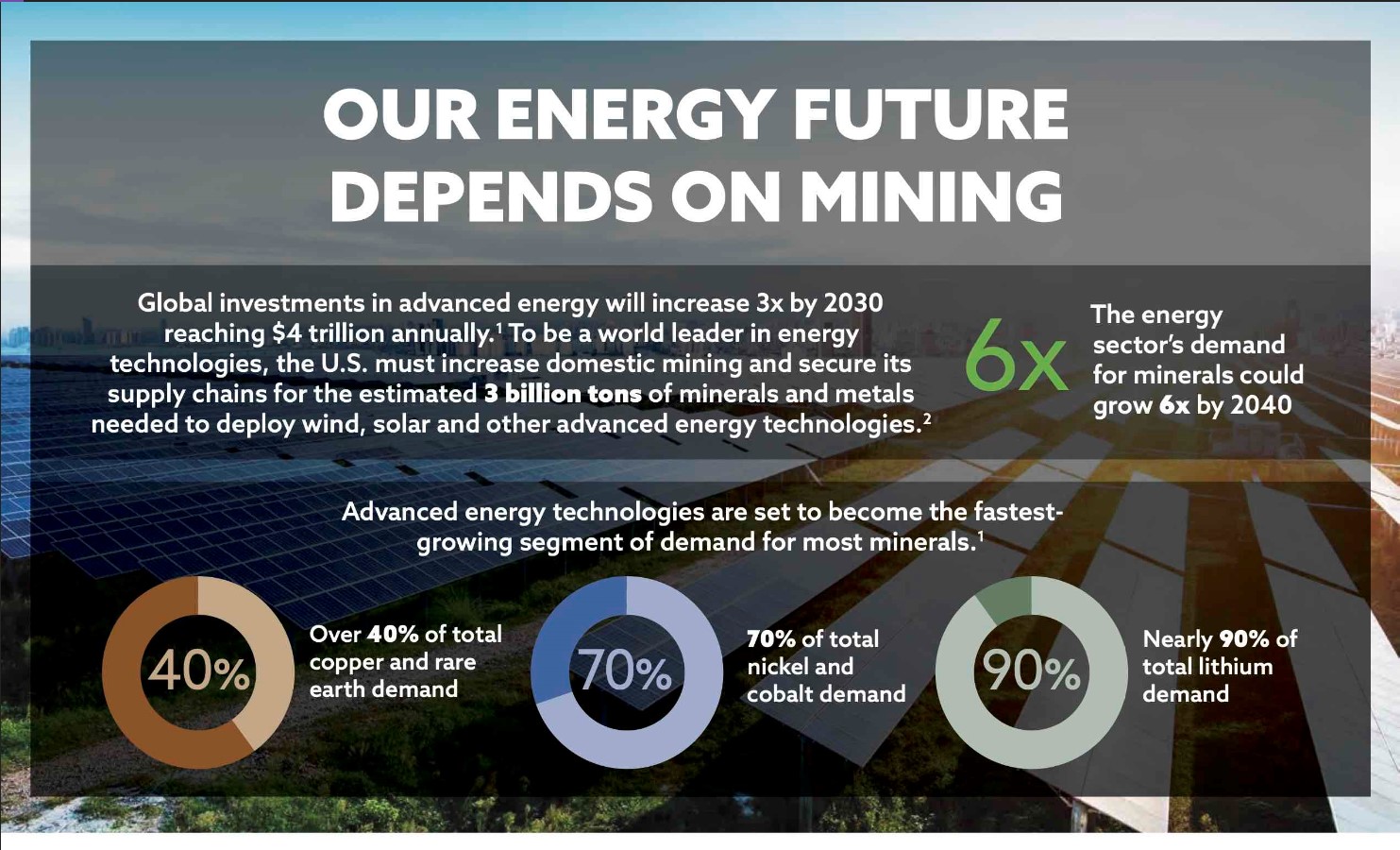As people focus on preserving the planet's natural resources and are leaning more heavily on renewable energies, the popular thought is that the mining and drilling industries are to blame for the negative state of the world. However, while we do need to be aware of our carbon footprint, there are benefits to mining that cannot be overlooked.

(Discover the full infographic at https://mineralsmakelife.org/resources/our-energy-future-depends-on-mining/)
The mining industry supports our everyday life. The mining industry not only provides the elements for the innovations of tomorrow, but the U.S. minerals industry also supports more than 1.1 million jobs. In addition, estimations indicate that another 3.5 additional jobs are created elsewhere in the economy for every metal mining job compared to every non-metal mining job producing around 2.6 other jobs. With mineral mining directly employing more than 400,000 Americans today, and more than 700,000 indirectly employed, the mining industry is a significant driving force in our economy.
Aside from supporting thousands of jobs, the mining industry provides raw materials, minerals and metals critical to our economy. They provide the foundations for modern living, innovation and engineering achievements. Take platinum, for example; it is used in more than 20 percent of all manufactured goods. Platinum is essential to creating everything from personal computers, flat-screen TVs and hybrid cars to life-saving medical devices. Today, the National Mining Association (NMA) reports that U.S. manufacturers rely on 29 of the 35 "critical" minerals, as the Department of Interior designated, essential to a strong U.S. economy.
Mining to Protect Health, Save Lives
Life-saving medical devices would not exist without many of the metals and minerals that are mined. There are even medicines that doctors and patients rely on every day that would not be available. For example, minerals are crucial materials to operate CAT scan devices. Copper, silver and gold are mined here in the United States to support these machines. Lithium is found in pacemakers, defibrillator machines and other portable electronic equipment, while titanium is used in surgical pins, bone plates, wires, rods, stent-electrodes and screws. These are a few ways Americans and the world rely on metal and minerals for their health.
Mining for Advanced Energy Technologies
Renewable energy technologies rely on minerals. Copper is just one of these minerals. It is used in the wiring of solar panels and plays a significant role in components for wind turbines. Not only is this mineral a key player in energy production, but it also is critical to renewable energy storage as copper is used in lithium-ion batteries. On the topic of energy storage, another mineral frequently used is manganese. It is an additive in steel alloys and is found in electric vehicles and wind-and-solar power-storing batteries, along with lithium. Only procured through mining, these metals and minerals are also in both off-shore and on-shore wind power projects.
Mining to Keep Americans Safe
Metal and minerals are vital components of our national security; the United States Department of Defense utilizes more than 750,000 tons of metals and minerals annually, which have U.S. sourcing requirements. For example, armor plates are comprised of chromium, nickel and molybdenum combined in precise amounts and applied to purified scrap metal to protect people by withstanding explosions and gunshots. At the same time, airborne equipment employs beryllium to detect and destroy improvised explosive devices (IEDs).
Mining, directly and indirectly, impacts all of us every day, from the phone that connects you to the world to the innovations in renewable energy that power homes and vehicles. Scot Forge helps support mining by developing and manufacturing forged components that are more sustainable as they require less material and are reliable, creating less scrapped parts and waste.